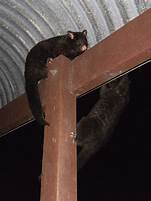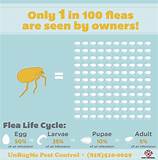Can You Have a Pet Possum in California?
Possums are unique and intriguing marsupials that have captured the attention of many animal enthusiasts. Their curious habits and appearance have made them a topic of interest in various parts of the world, including California. However, before considering a pet possum, it's essential to understand the legality and practicality of owning one in the state of California.

California's Law on Possum Ownership
1. Legal Status: In California, it is illegal to own or possess opossums as pets. This prohibition is outlined in the California Code of Regulations, Title 14, Section 671. The regulation specifically states that "No person shall import, transport, possess, or release alive any opossum (Didelphis virginiana)." This ban applies to all species of possums, including the common opossum, which is the only species found in California.
2. Penalties: Violating California's law regarding possum ownership can result in legal consequences. Penalties may include fines, jail time, and the confiscation of the animal. Additionally, individuals who knowingly release a possum into the wild may face additional charges for introducing a non-native species into the ecosystem.
Ecological Impact of Possums
1. Non-Native Species: Possums are not native to California, and their introduction could have severe ecological consequences. These animals are known for their opportunistic feeding habits, consuming a wide range of foods, including fruits, vegetables, insects, and small animals. Their presence can significantly impact native wildlife, competing for food resources and potentially transmitting diseases.
2. Disruption of Ecosystems: Possums can also disrupt ecosystems by modifying habitats and altering the natural balance of species. They are known to create dens in trees, hollow logs, and abandoned burrows, potentially displacing native wildlife. Additionally, their digging behavior can damage vegetation and disrupt soil structure.
Risks Associated with Possum Ownership
1. Zoonotic Diseases: Possums can carry various zoonotic diseases transmissible to humans, such as salmonella, tularemia, and leptospirosis. These diseases can cause serious health issues and even be fatal in some cases. Proper hygiene and precautions are essential to minimize the risk of infection, but complete elimination of the risk is not possible.
2. Aggressive Behavior: While possums are generally docile creatures, they can display aggressive behavior, especially when cornered or threatened. Their sharp claws and teeth can inflict painful injuries, and their bites can become infected if not treated promptly.
3. Dietary Needs: Possums have unique dietary requirements, and providing them with a balanced and nutritious diet can be challenging. They need a combination of fruits, vegetables, insects, and small animals, which may not be readily available or easy to obtain.
In conclusion, owning a pet possum in California is illegal, and for good reason. The ecological impact of these non-native animals, the risks associated with their ownership, and the potential for zoonotic diseases make them unsuitable as pets in the state. Additionally, California's law clearly prohibits the possession of opossums, and violating this law can result in legal consequences.
Declaration: All article resources on this website, unless otherwise specified or labeled, are collected from online resources. If the content on this website infringes on the legitimate rights and interests of the original author, you can contact this website to delete it.




